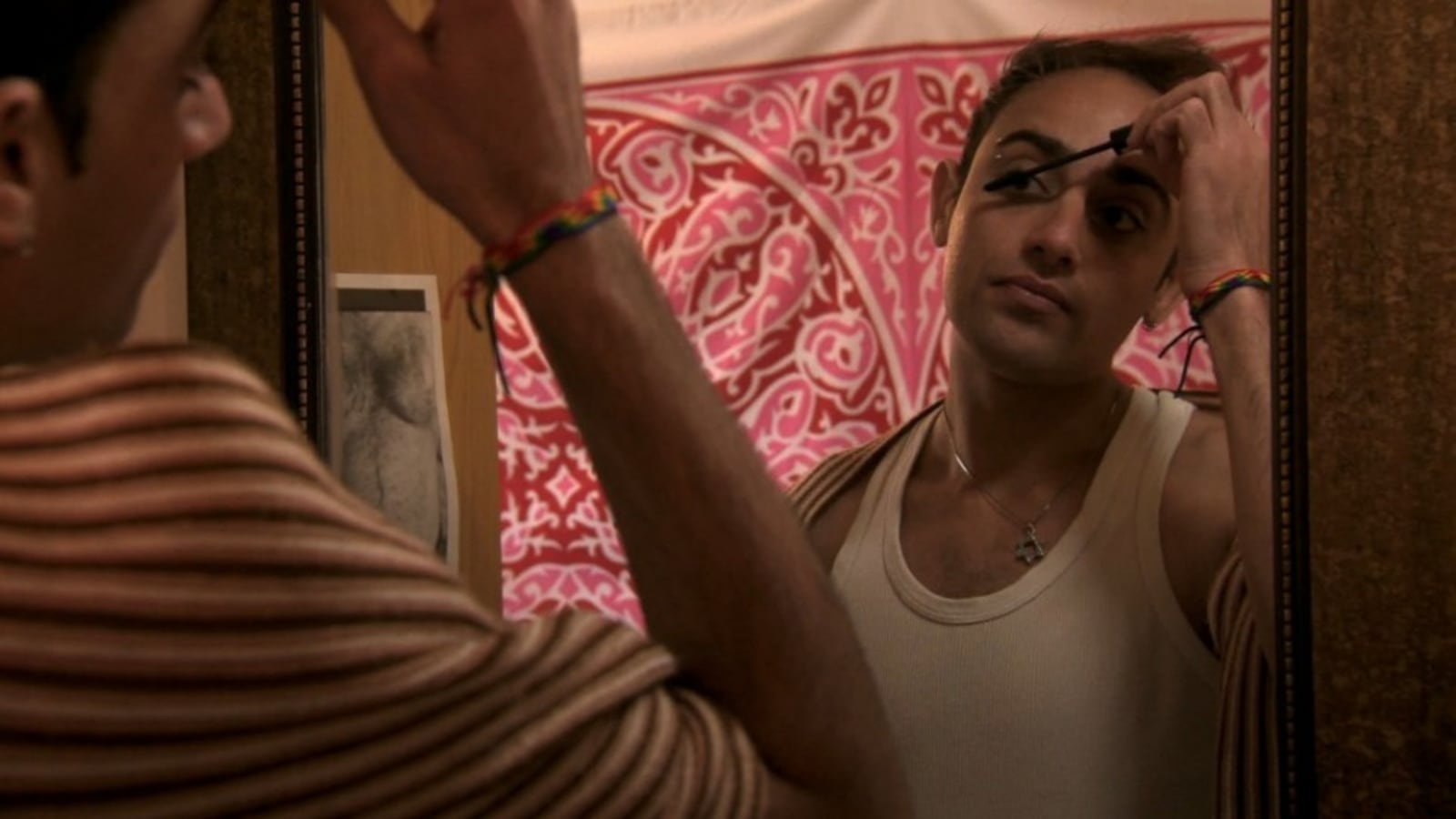As the first frame of “The Invisible Men” flashed across the big screen Friday at New York’s Cinema Theater, I steeled myself for the worst. Back in August, I’d seen the Israeli documentary accused of pinkwashing when it screened at the Vancouver Queer Film Festival, and the film endured similar charges in San Francisco in June. This would be my first time seeing the movie, and I was fully prepared to chalk it up to another Israeli attempt to put a progressive face on a brutal occupation.
But within the first few seconds of the documentary, director and narrator Yariv Mozer equated Israel’s policy of deporting gay Palestinians to the Occupied Territories with “sending them to certain death.” He bemoaned the fact that these men, many of whom sneak into Tel Aviv seeking refuge from violently homophobic families, are then “constantly hunted” in Israel as “illegals.” As the film went on to depict checkpoints, barriers, and the thousand indignities visited upon Palestinians every day, it became increasingly hard to see how this film could rightly be accused of pinkwashing.

“The Invisible Men” tells the story of Louie, a gay Palestinian forced to flee the West Bank when his father attacks him with a knife after learning of his sexual orientation. Louie escapes to Tel Aviv, where he ekes out a life taking odd jobs and dodging Israeli police. The Tel Aviv law clinic from which he seeks legal help puts him in touch with Abdu, an outspoken gay Palestinian from Ramallah who aptly sums up their double-edged situation: “The Palestinians won’t accept us because we are gay, and the Israelis won’t accept us because we are Palestinians without permits.” Eventually, both men are granted asylum in a European country, and they leave their homeland behind for good. But the choice to leave is bitter for Louie, who says, “I want to breathe my culture, my land. I really don’t want to go abroad.”
The audience applauded loudly as the credits rolled, giving Mozer and writer-producer Adam Rosner a warm welcome as they stepped up for a post-screening Q&A hosted by the Other Israel Film Festival. But they asked some tough questions, too. “Do you believe gay Palestinians should be granted asylum in Israel?” one man wanted to know. Rosner sidestepped the question with a blanket statement—“Israel has a moral obligation to protect those who need protection”—while Mozer explained that the issue is a thorny one for Israel since the first Palestinian to be granted asylum could create a precedent for the Palestinian right of return.
Outside the theater, Mozer responded to the charges leveled against his movie. “I don’t understand where is the pinkwashing in this film,” he said. “I don’t think that this film came to promote Israel. This film was a huge criticism of Israel. I’m criticizing the occupation, the Israeli officials, the army, everyone.”
“I think the film does a tremendous job of avoiding accusations of pinkwashing,” Rosner agreed, adding, “Its approach is very balanced, if only because Yariv and I have divergent political views.”
Balanced or not, “The Invisible Men” was bankrolled in part by the Israeli government, and that’s what motivated Vancouver’s Queers Against Israeli Apartheid to call for a boycott of the movie in August. That group saw itself as acting in line with Palestinian queer organizations that support the call for boycott, divestment, and sanctions against Israel, including cultural and academic boycott.
Rosner seemed to think such boycotts simply serve to impoverish our knowledge of these crucial issues. “As far as academic boycotts of Israel,” he said, “I think that any time you boycott knowledge, that’s a failure for academia.”
Mozer, meanwhile, emphasized that he did not believe there was an “official” Israeli program of propaganda underlying the government’s decision to finance his film. Asked whether he thought there might be some unofficial pinkwashing going on, he shrugged his shoulders and grinned. “It sounds like something too smart for our current prime minister to think of,” Mozer said. “Honestly, he’s just not capable.”






